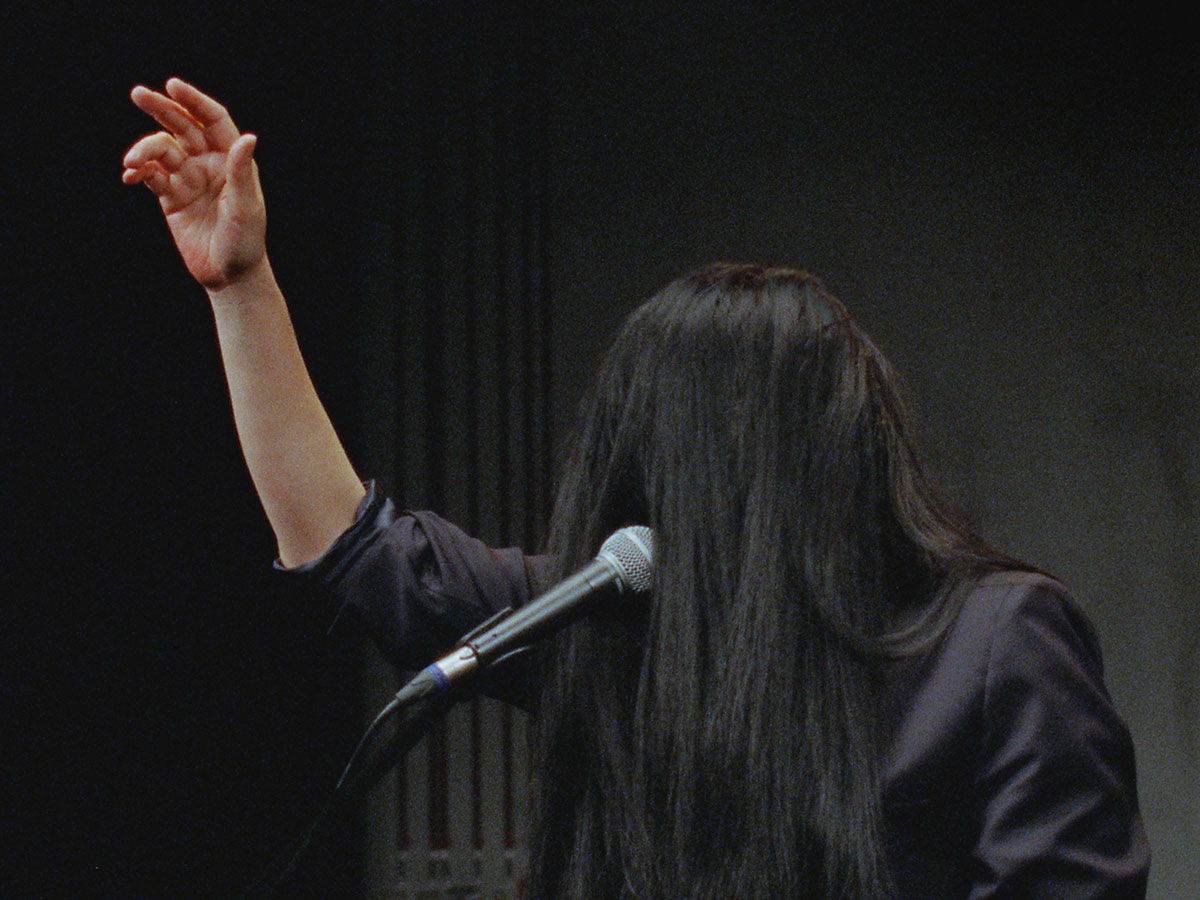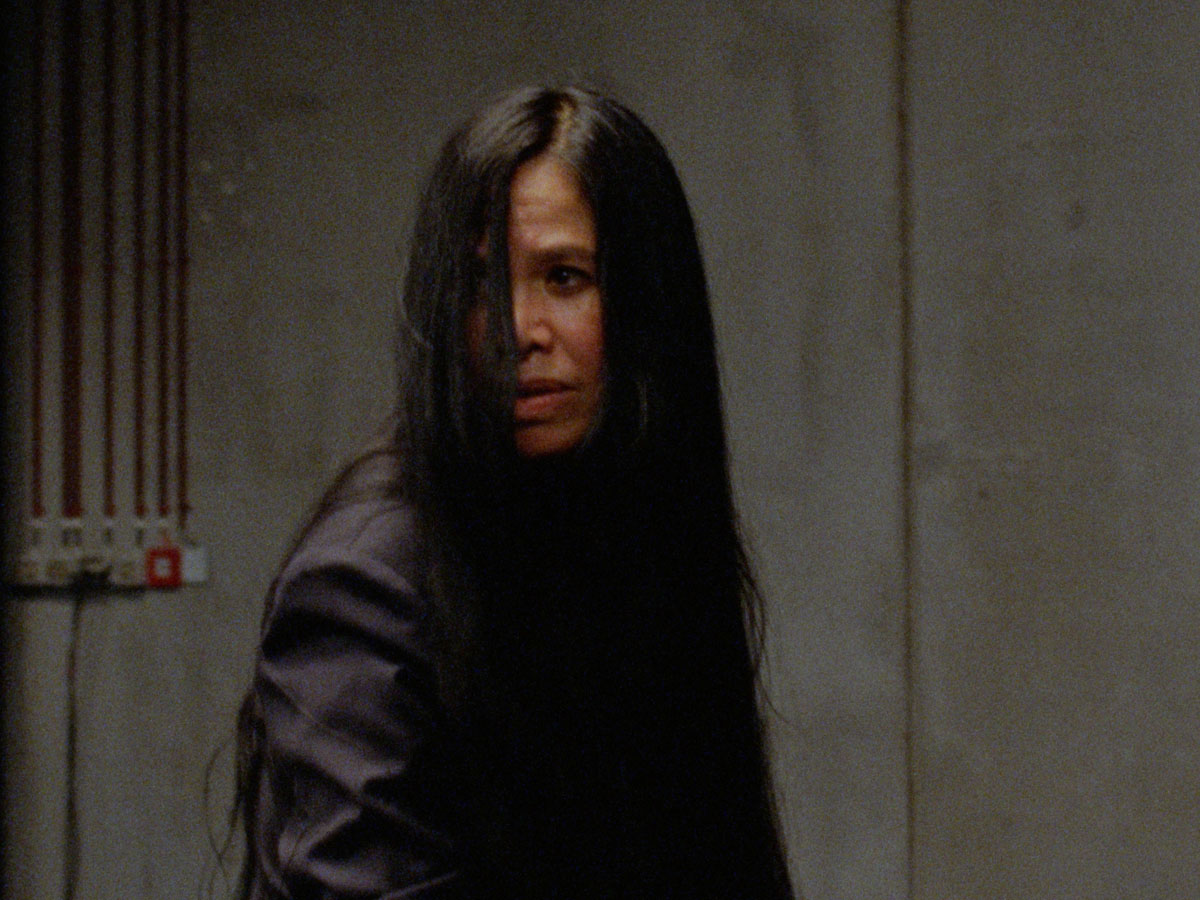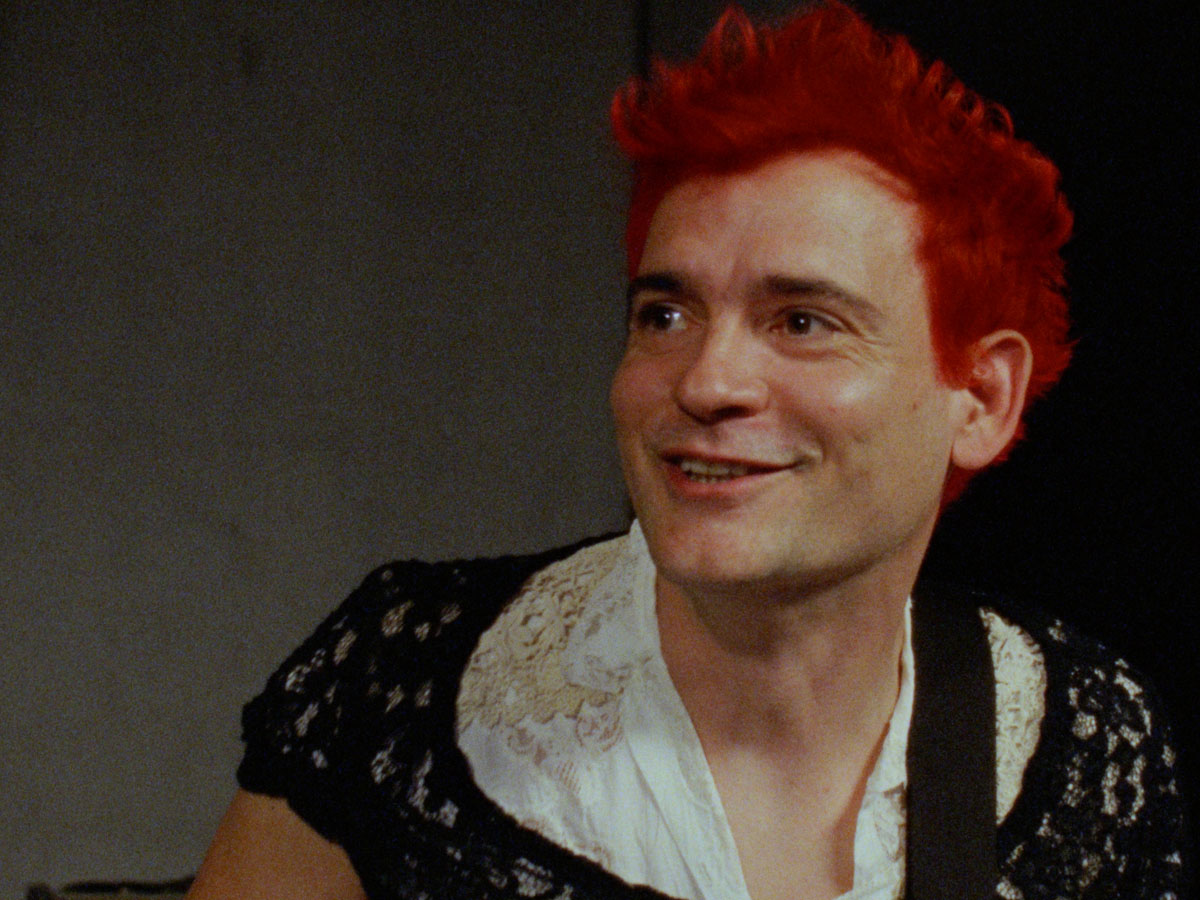Film (60′) and film installation (55′, loop)
English spoken
2025
Don’t Take It Personally is a film concert that intertwines themes of historical denial, collective violence, exile, and resistance. It offers a biting indictment of human and societal behaviour during unstable times shaped by capitalism and imperial greed.

Don’t Take It Personally intertwines themes of historical denial, collective violence, exile, and resistance. At first glance, the piece may appear to be a film showcasing a live music rehearsal. However, beneath the surface, it unfolds as a bold protest film—an urgent, powerful indictment of human behaviour and societal dynamics in times of upheaval, shaped by the forces of capitalism and imperial greed. In a world increasingly suffocated by systemic injustices, where many are denied the right to breathe, this cinematic score emerges as a reclamation of that breath. Through the rhythm and cadence of its sequences, the work invites the viewer to experience capitalism as a pervasive infection, designed to seep systemic toxicity into the smallest details of our daily lives.
The first movement serves as a prelude, a visual score that navigates European museum collections, signaling how capitalism was not only glorified in the paintings of the “Dutch Golden Age” but also how the violence underpinning this period was concealed in plain sight. Here, the origins of modern capitalism intersect with the violent history of collecting. The rhythm, repetition, and close-ups serve as reminders that we are, in fact, witnessing a crime scene.
The second movement transitions into a live performance captured on 16mm film, featuring Dutch-Indonesian tap dancer Marije Nie and Croatian musicians Alen and Nenad Sinkauz. Their rhythmic exchange blends movement, sound, and speech, creating a dynamic interplay that highlights the dual nature of tap dancing as both a means of self-expression and an act of protest. The performer’s voice draws from the writings of Dubravka Ugrešić (1949–2023), who defied nationalist narratives in the wake of the Yugoslav Wars, leading to her exile in Amsterdam in 1993. The language during this section is guttural, beginning with a deep frustration toward a system that consumes us alive ‘like rats.’ From (micro)aggressions to genocide, from mass killings to capitalistic systems of oppression, the narrator’s voice booms with a warning.




Framework – Two excerpts from Ugrešić’s essays serve as the film’s “libretto.” The first, almost prophetic in tone, portrays individual and collective behavior during societal collapse. The second, written in response to The Act of Killing (2012)—a documentary directed by Joshua Oppenheimer, co-directed by Christine Cynn and an anonymous Indonesian filmmaker—recognizes in the perpetrators of Indonesia’s massacres the architects of all genocides, including the masterminds behind the Srebrenica genocide. To give voice to these resonances, Jureša chose an amplified physical presence to create new pathways to Ugrešić’s words. She invited tap dancer and musician Marije Nie, who develops her own personal trajectory within the work. Nie, the daughter of a Chinese-Indonesian migrant, carries a family history deeply intertwined with Indonesia’s decolonization and the nationalization policies that followed, blending personal and historical struggle.
Tap dance emerged from a fusion of African and European percussive traditions, deeply shaped by slavery and segregation in the U.S. Enslaved Africans, often forbidden from using drums, preserved their rhythms through footwork, transforming dance into a means of both cultural preservation and resistance. Over time, racial barriers reinforced a divide between Broadway tap—often associated with white stars like Fred Astaire—and rhythm tap (hoofing), which remained deeply rooted in Black performance traditions with figures like Bill ‘Bojangles’ Robinson. The film subverts this legacy in its second movement’s performance scene. The tension between Broadway tap and Marije Nie’s spoken text is heightened, as her feet become percussive instruments of denunciation. Though Ugrešić’s text is not poetry, its weight and cadence resemble that of a slam performance.
